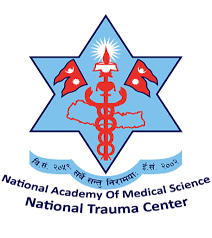Overview
MSc in Microbiology at Kantipur College of Medical Science (KCMS), Sitapaila, Kathmandu
KCMS in Sitapaila runs the MSc in Microbiology under Tribhuvan University (TU). KCMS offers postgraduate study that builds on core microbiology and takes you into medical, industrial, food, and environmental domains. Teaching follows TU curricula and assessment rules, with structured coursework, practicals, seminars, journal reading, and a research thesis.
Highlights
-
TU-affiliated master’s program based in Kathmandu
-
Advanced laboratory practicals in medical and industrial microbiology
-
Research project with proposal, data collection, analysis, and reporting
-
Seminars, journal clubs, and guided literature review
-
Exposure to diagnostic labs, hospitals, and industry sites as permitted
Curriculum Details
Coursework at KCMS covers advanced bacteriology, virology, mycology, parasitology, immunology, microbial genetics, food and industrial microbiology, environmental microbiology, epidemiology, and research methods. Lab work includes culture and identification, antimicrobial susceptibility testing, molecular concepts taught within TU scope, quality control, biosafety, and documentation. The thesis runs under faculty supervision following TU formats and timelines.
Objectives
-
Build strong command of laboratory methods and interpretation
-
Strengthen scientific writing, presentation, and critical reading
-
Prepare you for supervised responsibility in diagnostic or research settings
-
Support progression to teaching or PhD preparation as per rules
Scope
Graduates contribute to hospital diagnostics, infection prevention programs, food and pharmaceutical quality systems, environmental monitoring, and research units. Roles depend on your prior degree, the thesis area, and openings that match TU and national standards.
Learning Outcomes
Students completing the MSc at KCMS typically can:
-
Plan and carry out investigations based on TU-approved protocols
-
Analyze results and prepare reports that meet external audit needs
-
Follow biosafety and documentation standards required in labs
-
Present findings clearly to academic and technical audiences
Skill Development Modules
-
Advanced culture and identification workflows
-
Antimicrobial testing and result validation
-
Sample management and biosafety practice
-
Scientific writing, referencing, and thesis presentation
-
Basic data analysis for lab research
Teaching Methodology
Faculty lead lectures, small-group discussions, case reviews, and practicals. Internal checks include class tests, presentations, and lab records. External exams and thesis evaluation follow TU procedures.
Admission Requirements
-
Eligibility: BSc Microbiology or an equivalent microbiology-focused degree as per current TU rules.
-
Documents: Academic transcripts, character and migration/provisional certificates, and citizenship/passport copy.
-
Selection: KCMS may run a written test and interview. Final admission follows TU guidance and approved seat numbers.
Career Opportunities
Graduates move into diagnostic laboratories, research projects, QA/QC units in food and pharma, teaching roles where permitted, and PhD tracks. Actual roles depend on vacancies, prior experience, and regulatory requirements.
Scholarships and Financial Aid
KCMS may announce merit or need-based support within policy limits. Applicants should check the latest notice for quotas, forms, and dates.
Why Choose This Course?
Students who enjoy research, careful lab work, and clear documentation find strong value here. Kathmandu placement eases access to clinical and industry networks, which supports thesis work and exposure visits where available.
Conclusion
The MSc in Microbiology at KCMS follows TU standards and gives you structured study, practical depth, and a thesis pathway. Students seeking advanced lab competence for Nepal’s health, food, and industrial sectors gain a clear route here.


.png)
















